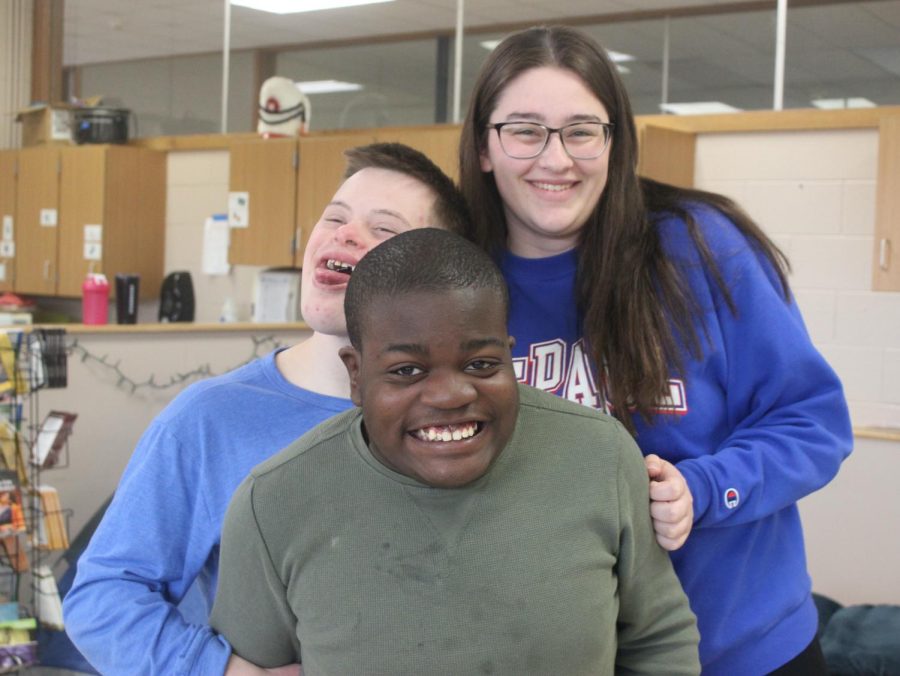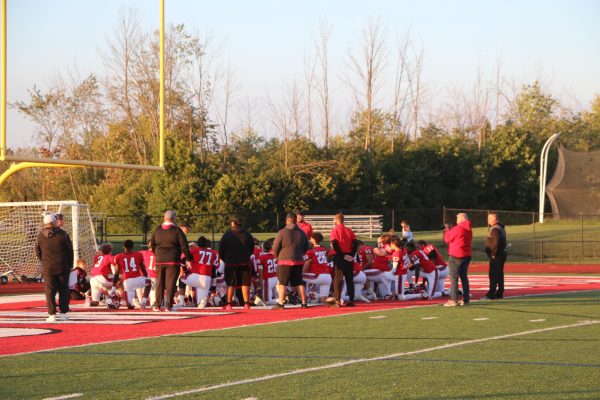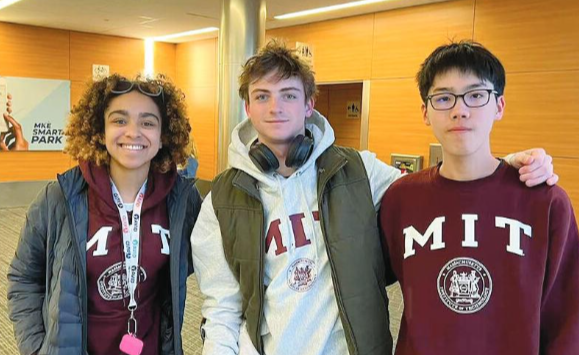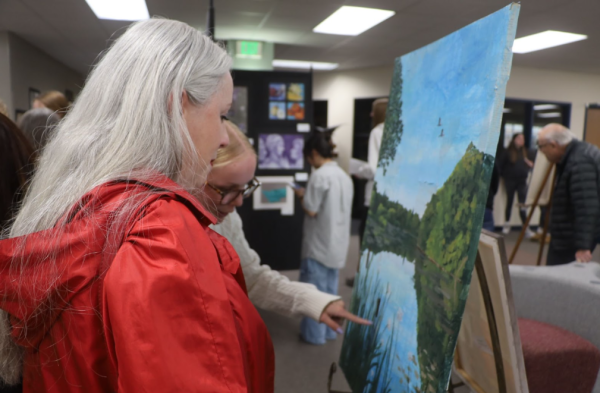Acceptance not Awareness: How worldwide changes have impacted MTSD’s approach to Autism Spectrum Disorder
Clare Kunschke, Andrew Heinz and Ginou Tiako smile during class together.
As time has gone by, awareness regarding the diverse qualities and abilities that we all possess has grown exponentially, and institutions have been able to adapt to the knowledge that has been illuminated to them to the best of their ability. This worldwide trend of change has been reflected at Mequon Thiensville School District (MTSD), a school district whose recorded number of students on the autistic spectrum has shifted from 7.7% in 2014 to 20.1% in 2021 according to a figure reported in a March 28 school board meeting.
During her 7 years as MTSD’s autism specialist, Danielle Ozimek has keenly observed this increase that has emerged in recent years.
“We are getting so much better at acknowledging and celebrating the spectrum. In the past,” Ozimek said. “I think there was such a focus on a picture of stereotyped or more classical autistic traits and that we’ve all grown in our acknowledgment and celebration of the variety of characteristics that could be shown”
In 1943 Austrian American physician Leo Kanner first diagnosed a child with what would come to be known as Autism, however, the disorder was not added to the DSM (The Diagnostic Statistical Manual of Mental Disorders) until 1980 and its diagnostic characteristics have shifted in each of the issues that have followed.
According to the CDC, the number of children diagnosed with Autism Spectrum Disorder increased from 1 out of 150 students in 2000 to 1 out of 44 students in 2018. This shift can be attributed to the disorder’s fluctuations that have occurred. With all of this new information coming to light innovative support, and methods have dawned upon schools around the country, including Homestead.
“I think we’ve come a long way,” Ozimek said “We’ve really proactively set students up for success with creating predictable structures, incorporating more visual supports, which are sometimes easier to access than verbal language, and really shifting to more of a proactive approach”
Clare Kunschke, senior, has dedicated herself to being of service to Homestead’s special needs students through her AP Research study and volunteering, and through this, she has gained a uniquely informed perspective.
“I think that Homestead does a great job at integrating inclusive education for those students to enjoy,” Kunchke said.
These adapted measures are all steps that the district has taken in the right direction.
“We have really gotten better as educators at really analyzing why we see some externalizing behaviors lead to students doing what some have labeled as ‘misbehaving’” Ozimek said. “We now view it as a student experiencing some dysregulation, and that student needs support.,’ not something that needs to be punished.”
A cultural shift in the way that society approaches autism has occurred in tandem with a medical one as leaders within the community have raised questions that have sparked healthy discourse that has accumulated into what Ozimek referred to as the ‘autism war.’
“As a society, including MTSD, we are working to shift from Autism Awareness Month into Autism Acceptance month because it’s about growing in our understanding so we can push ourselves to become better advocates,” Ozimek said.
Ozimek, along with MTSD’s combined special education staff, has used their positions to increase acceptance by sharing resources with all of the district’s schools while also encouraging them to take advantage of their opportunities to learn about the lived-in experiences of those who are on the spectrum themselves and help better the world for us all.
“Mental health and Disabilities, in general, are not viewed culturally as big of taboos as they have been in the past,” Kunchke said. “That change has opened up so many supportive doors for people on the spectrum, and that has improved their quality of life in a really positive way.”

Blair Martin is currently a senior at Homestead High School. She’s beyond psyched about continuing her work in the pubs lab and using the lessons she...






